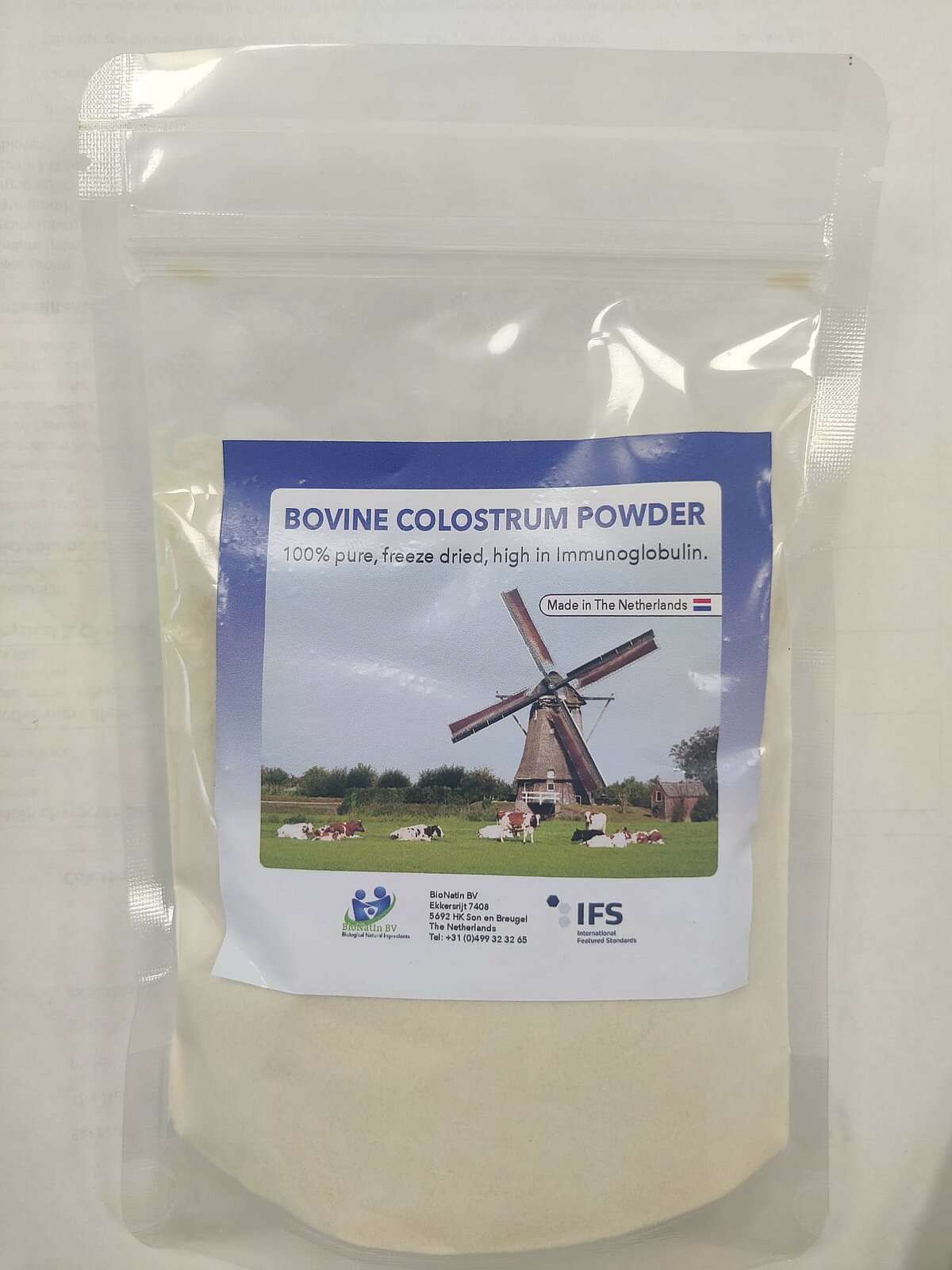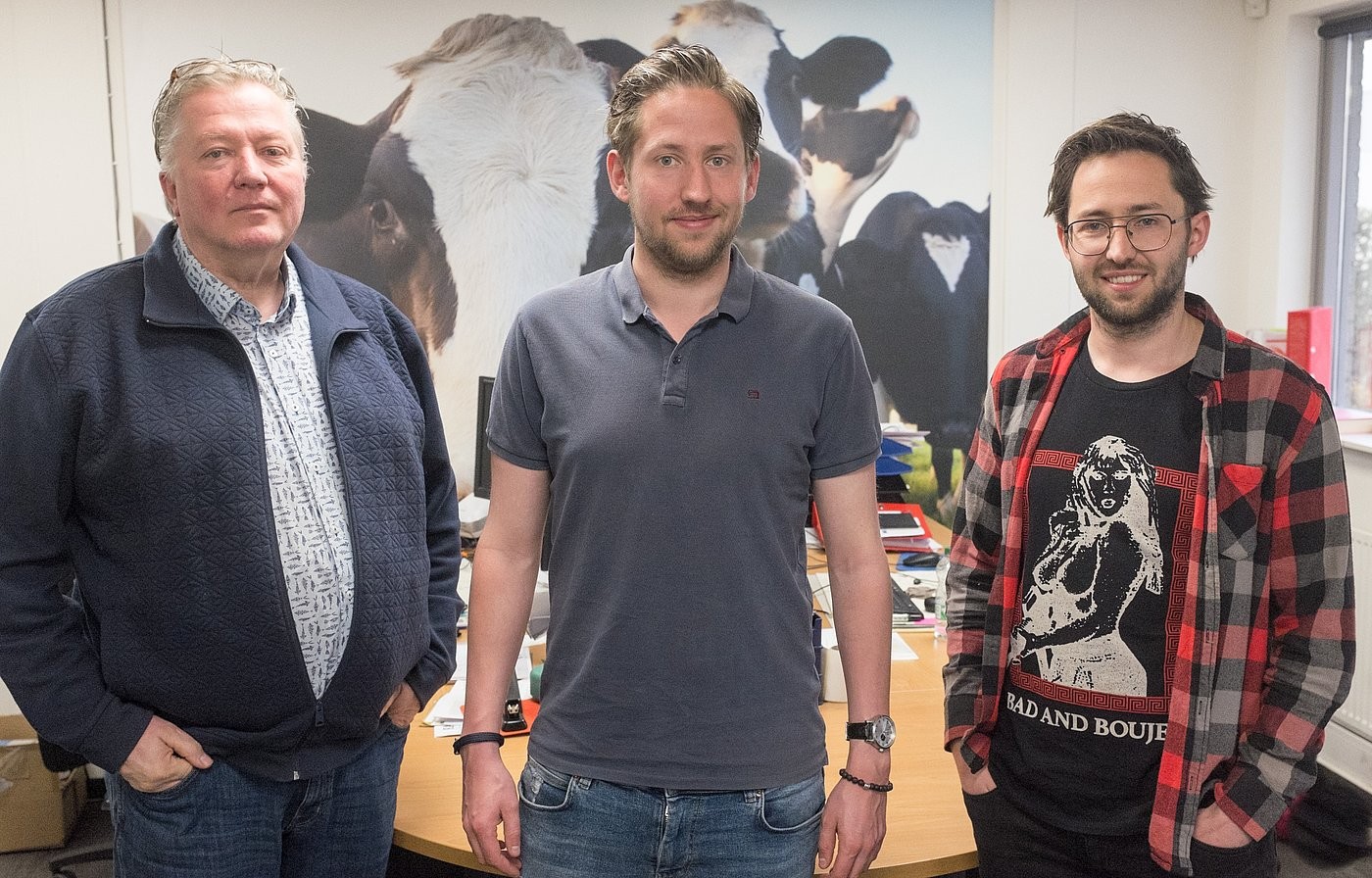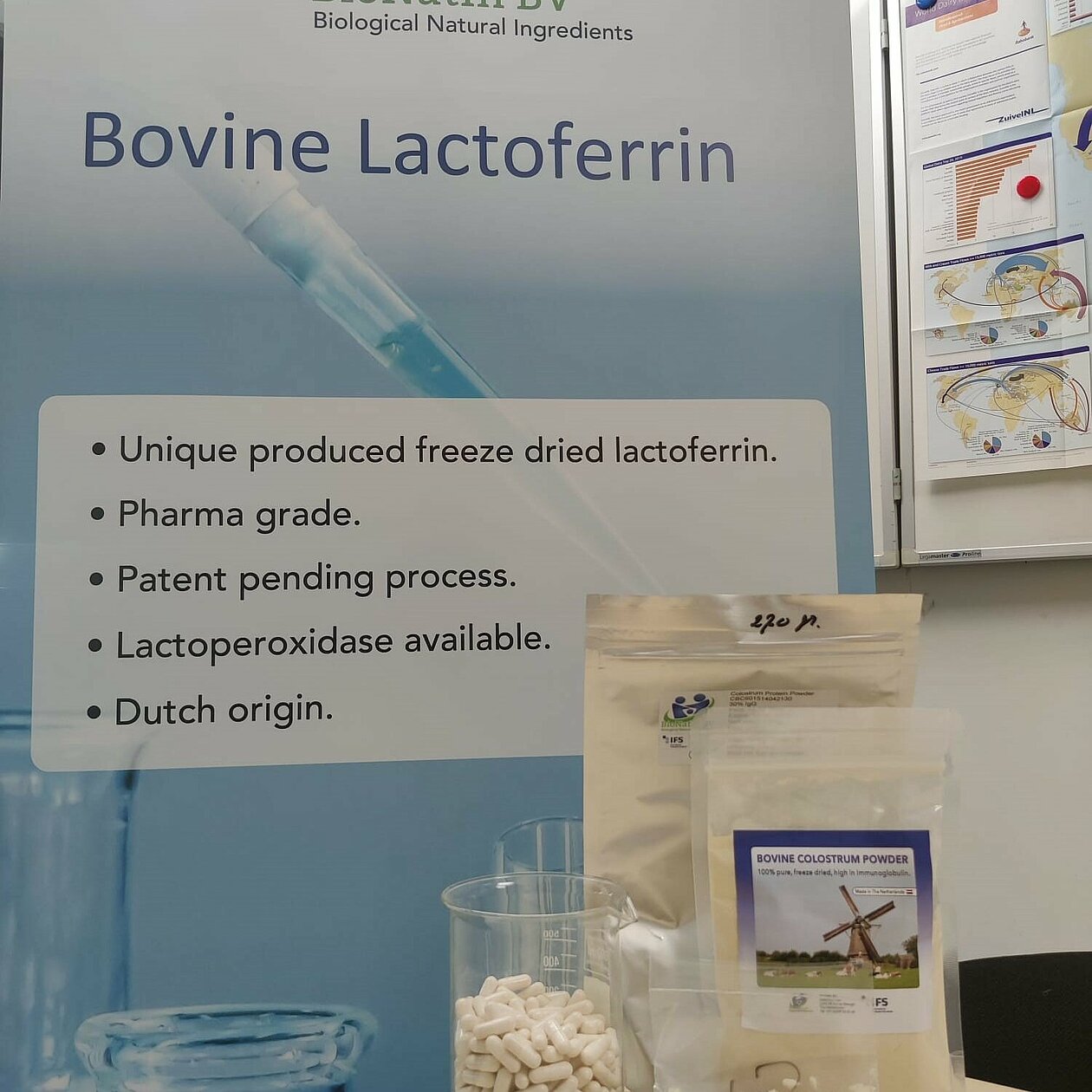08 April 2024
Netherlands lags behind in artificial intelligence
- AI (artificial intelligence)
- About Brainport
A cow's first breast milk - colostrum - contains a lot of protein. "Just look at what it does when a calf has just been born," says Erwin van de Pasch, owner of family business BioNatIn in the Dutch village of Son en Breugel, part of Brainport Eindhoven. "First, it lies like a skinny scraggly thing in the straw behind the cow. But as soon as the calf has had that milk for a day or two, it's as if it explodes. It gains muscle and gets stronger. That's how colostrum works."

In about two years, BioNatIn grew from nothing at all to about 40 customers worldwide, including in Germany, Italy, and Spain but also in South Korea, China, Thailand, and Taiwan. "It's a small market, but with potential for many different sectors." For example, the company has customers in baby food, beauty products, and dietary supplements.
Van de Pasch shows a tube of toothpaste: "If you study the ingredients, you'll see it says 'colostrum.'" It is also found in protein shakes for athletes and in powders given to patients to recover from surgery. "It is a natural growth hormone. It is, therefore, also forbidden by the IOC because it does something special to the body: strengthen muscles."
For example, it contains high levels of immunoglobulin G (IgG), an antibody, and lactoferrin, an anti-inflammatory protein. "Lactoferrin kills bacteria. If you put it in an ointment and apply it to superficial skin inflammation, you can remedy that inflammation without antibiotics." The drug also provides relief for people with Crohn's disease. Van de Pasch is currently working with two universities to investigate what it can do for people with Alzheimer's disease. "It just has a lot of potentials. We want to see how far we can get for example as an alternative to antibiotics."

A cow produces about 4 to 8 liters of colostrum after the birth of a calf. Van de Pasch: "After the second day it is no longer colostrum. Then the milk is back to normal proportions." From that first milk, a calf drinks about 2 to 3 liters, what remains is interesting for Van de Pasch.
He started collecting colostrum about 12 years ago. Until then, the entrepreneur worked at the Research and Development department of Unilever. That department became independent and he continued to do the purchasing and sales of new food products there. Another European company produced colostrum and when that company changed owners, Van de Pasch made the move to produce it himself. In 2018, together with his sons Koen and Bart, he started BioNatIn, from an empty building on the Ekkersrijt industrial estate in Son en Breugel.
Producing colostrum is a laborious process, Van de Pasch knows. "The proteins are very sensitive to heat. Anything above a certain temperature makes the proteins unusable for what they are primarily intended for. We spent two years studying how to process colostrum in the best way possible."

Besides BioNatIn, there are about 6 or 7 companies worldwide that process the milk product. What can BioNatIn do differently than its competitors? "We keep it as cold as possible." It is mandatory to pasteurize milk for 12 seconds at 75 degrees. "At that temperature, the sensitive proteins in colostrum break down. They have no function anymore." To solve that problem, Van de Pasch came up with an alternative to the "spray tower" that competitors use. That's a tower where the liquid is sprayed into hot air to dry.
"That all still happens at high temperatures. In our opinion, this reduces the quality of colostrum." That's why Van de Pasch uses freeze-drying. The liquid colostrum goes into a square plate of two centimeters high. With a few hundred liters at a time, it is poored into the machine. That machine freezes it, after which the product is drawn into a deep vacuum. “As a result, it goes directly from a frozen substance to powder”, Van de Pasch explains.
Most of these machines didn't exist yet. "We had to invent and build them," he says. For that, the company received help and initial funding from Brightmove, which is affiliated with Brainport Development, to draw up a business plan. "With that support, we also got in touch with the right person at Rabobank and De Lage Landen to finance our machines." BioNatIn also received a grant from the RVO. And for questions, there are short lines through Brainport Development with TU Eindhoven, or other companies. "We once had a problem with a machine. Then Frank (Van de Ven, TU Eindhoven, ed.) referred us to VDL. And for another problem again to Demcon. The network is amazing."
Some 450 farmers are suppliers for BioNatIn. They freeze the remaining colostrum, and a specialized company working with BioNatIn picks it up. "We're looking for more and more farmers." The company expanded production capacity by half last year. "We just need more colostrum to produce." Currently, the company processes about 20 tons per year.
Van de Pasch is most proud of the fact that, together with his two sons and a staff of one, he went from nothing at all to some 40 customers worldwide in two years. "Our production process is actually a patentable story. We started the application for it but we're at the point where we're not pursuing this. We're just not telling anyone about it. A patent costs a lot of money, also to maintain. We would be better off using that money to develop new applications. As long as we are still a family business, it will stay between us. Then, just like the recipe for Coca-Cola, it will remain our best-kept secret."
Source: Innovation Origins